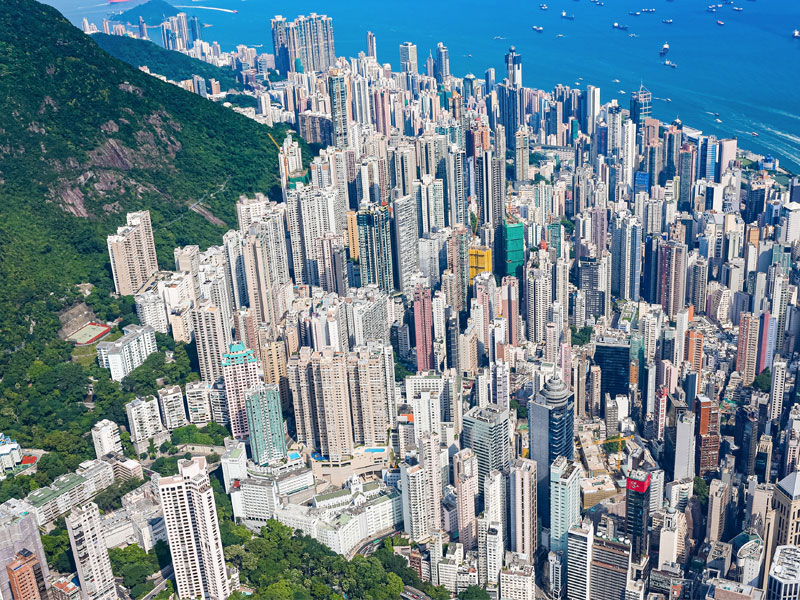
The second-last webinar of the Trinity Development & Alumni “Future Cities” series this week delved into the makeup of one of the world’s most unique and sprawling cities: Hong Kong.
Dr Federio Cugurullo, an assistant professor in smart and sustainable urbanism in Trinity, was joined by Prof Becky Loo, the director of the Institute of Transport Studies in Hong Kong University, and Henry Au, the founder of PandaEX Crypto Exchange, to discuss how the city is adapting in its own unique way to the challenges that cities across the globe share.
Transport, unsurprisingly, was at the forefront of Loo and Au’s mind. Hong Kong is known for its widely used and efficient public transportation system, which accounts for 90 per cent of all motorised trips.
Fears abound now, however, about the spread of the coronavirus on public transport. Au said that the biggest challenge facing Hong Kong was “still public hygiene protection”. Encouraging mask wearing and cleaning would be important in preventing the spread of the coronavirus, he said.
Loo pointed to a new terminus in Hong Kong, where people can wait in air-conditioned waiting rooms for their bus, thus improving the overall experience of using public transport.
“How can we make the low-carbon transport options attractive to people?” was the question Loo posed. Choice, she said, rather than forcing people to adopt forms of transport was key.
Au – a successful businessman in his own right – stressed the importance of making sure that innovations introduced to make a city “smart” had a successful business model, in order to make them sustainable.
He cited Hong Kong’s Octopus card as a good example. It started, he said, as an easy way to pay for transport, but has now spread to other transactions across the city. He said that projects should be “about how much money you can generate on the revenue side to support that project”.
When asked what the future of Hong Kong would look like, Loo said that digitalisation is the way forward – going cashless and embracing new technologies to make transport quicker and more efficient.
She also spoke briefly about the future of autonomous cars – something Au was a proponent of, as an owner of a Tesla car himself. She said that autonomous cars were still some way off being able to deal with the complexity and helter-skelter nature of a city like Hong Kong, but that further down the line, autonomous cars could be safer to use than cars driven by people.
Au saw closer direct transportation routes with mainland China and South-East Asia as important for the future of Hong Kong, picking up on a theme he had earlier highlighted about the rise of online shopping in Hong Kong, particularly via the online-shopping behemoth Alibaba.
All in all, it was another engaging talk from the Future Cities series, shining a light on a city vastly different to Dublin in almost every way. The last webinar of the series will focus on San Francisco and will take place on June 9th at 7pm.






